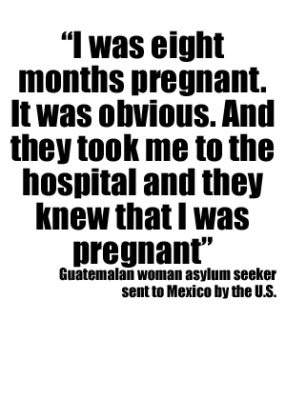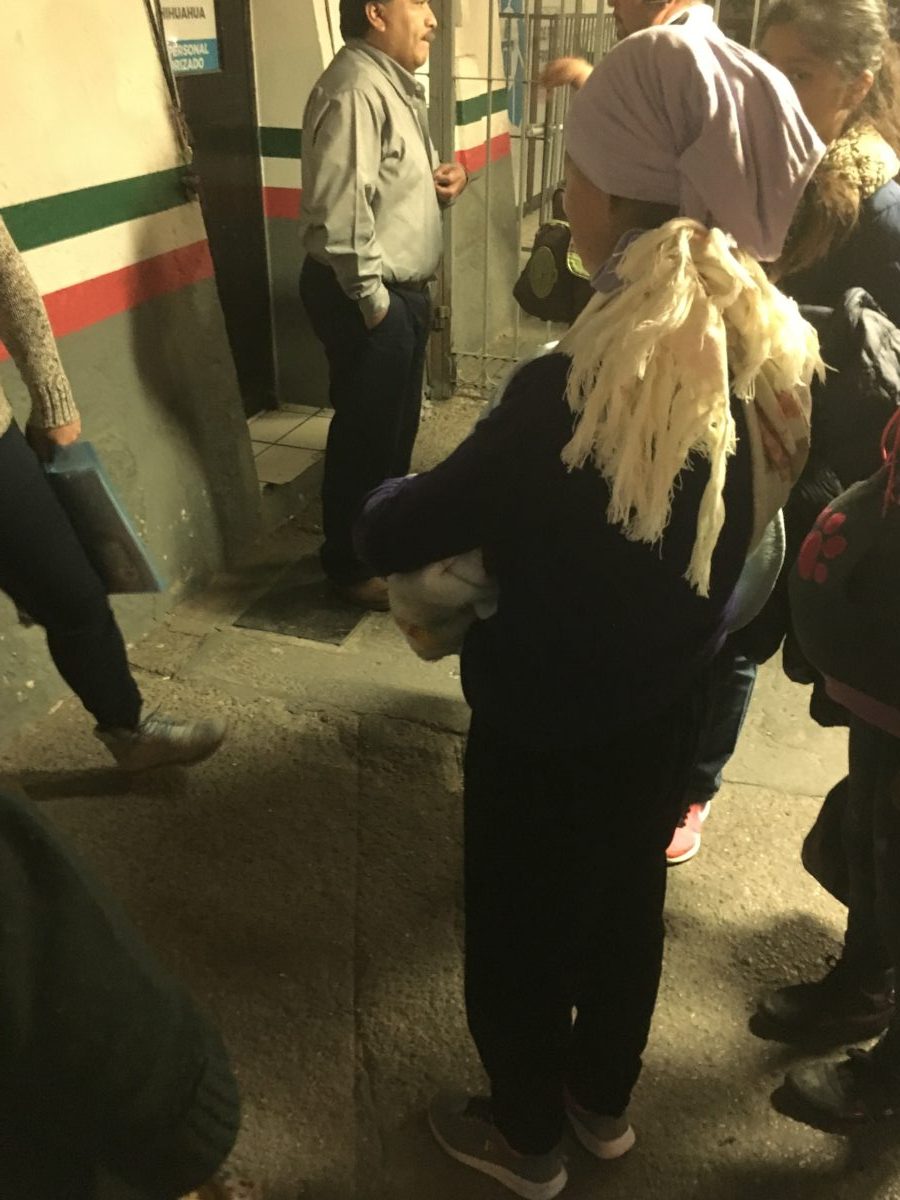At least nine pregnant migrant women have been sent from El Paso to Ciudad Juárez under the Trump administration’s controversial “remain in Mexico” policy for some asylum seekers, then taken out of the program and allowed to go free in the United States after court hearings.
The practice of sending pregnant women to Ciudad Juárez, which has averaged five murders per day in recent weeks, drew criticism at a recent congressional hearing. Kevin McAleenan, the Department of Homeland Security acting secretary, said at the May 22 hearing that Border Patrol agents have the discretion to exempt pregnant women from the Migrant Protection Protocols program but are not required to do so.
“This administration is putting pregnant women in danger. Do you know how dangerous it is to be sent to Juárez, Mexico?” Rep. Nanette Barragan, D-California, asked McAleenan at the hearing. “As member of Congress, I can’t go there without permission. That’s how dangerous it is.”

Rep. Nanette Barragan, D-California
She told McAleenan that a Border Patrol official told her during an April visit to El Paso that pregnant women are among the people exempted from MPP. She said the same thing in an interview with a few days before the hearing.
“So either I was lied to or they’re not following policy,” Barragan said in the interview.
DHS didn’t respond to questions about Barragan’s claim that she was told pregnant women were exempt from MPP. The administration hasn’t provided an estimate on how many pregnant women were returned to Mexico under MPP.
“Consistent with the policy, migrants with known physical or mental health conditions are not subject to the Migrant Protection Protocols. Pregnancy may not be observable or disclosed, and may not in and of itself disqualify an individual from participating in the program,” a DHS official said. “Agents and officers would consider pregnancy, when other associated factors exist, to determine eligibility for the program.”
A Guatemalan woman who was sent to Ciudad Juárez in April said Border Patrol officials knew she was pregnant.
“Of course I told them. I was eight months pregnant. It was obvious. And they took me to the hospital and they knew that I was pregnant,” the woman, who asked not to be identified because her life is in danger in her home country, said in an interview.
 The Guatemalan woman gave birth to a daughter on May 8 in Ciudad Juárez. She returned to El Paso with her daughter for her first immigration court hearing on May 16 and was removed from MPP by Border Patrol agents. She is now with family in the United States. A DHS official declined to address why she was freed.
The Guatemalan woman gave birth to a daughter on May 8 in Ciudad Juárez. She returned to El Paso with her daughter for her first immigration court hearing on May 16 and was removed from MPP by Border Patrol agents. She is now with family in the United States. A DHS official declined to address why she was freed.
The Guatemalan woman was among nine pregnant women who returned to El Paso for immigration court hearings as part of MPP since mid-April. All nine were later taken out of MPP and released into the United States, though officials haven’t explained why.
El Paso and San Diego are the only two immigration courts currently handling MPP cases. It’s not clear whether San Diego immigration courts have handled any cases of pregnant women placed in MPP.
On May 23, six pregnant women appeared before immigration judge Nathan Herbert in El Paso. Two of the women told Herbert they were within days of giving birth.
Immigration judges cannot remove people from the MPP program. That decision is up to DHS officials. The six pregnant women who appeared in El Paso immigration court on May 23 were released in El Paso the following weekend and joined family in the United States, according to migrant advocates.
The nine pregnant women who were placed in MPP and then taken out were among the first 200 or so people sent from El Paso back to Ciudad Juárez in March and April.
They returned for court hearings a few weeks after being sent to Ciudad Juárez. The number of people sent back to that city is now more than 5,000. People sent back in recent days have been given court dates of July 2020, migrant advocates said.


